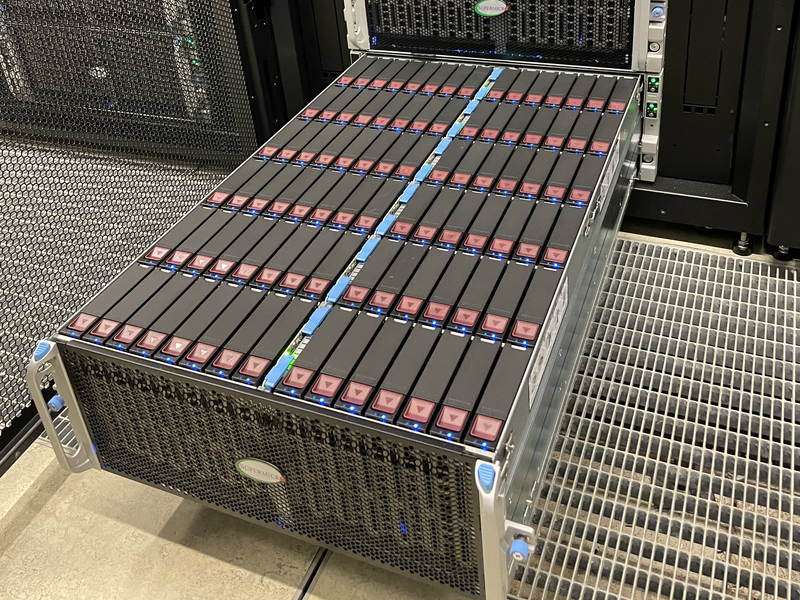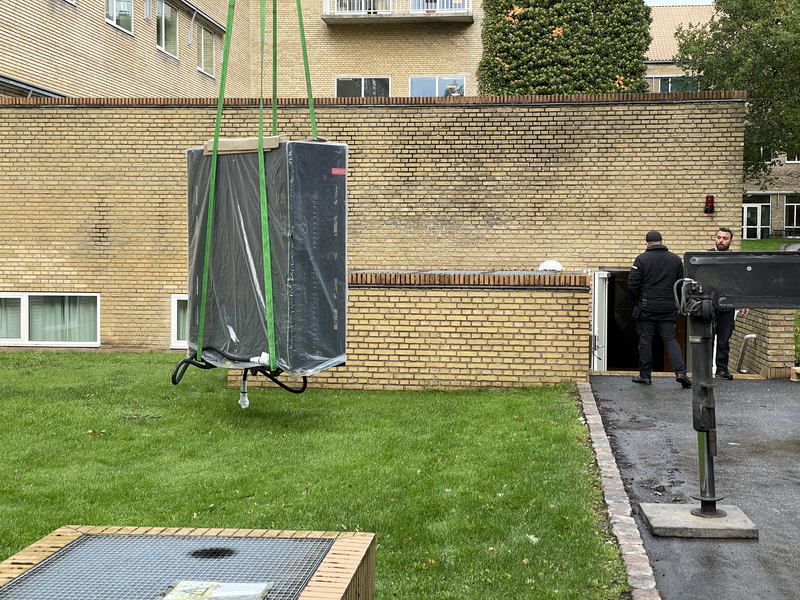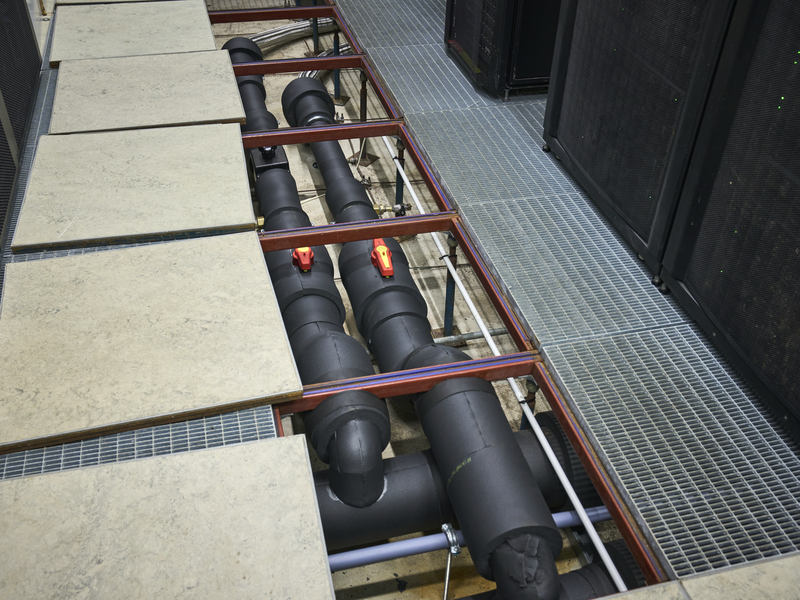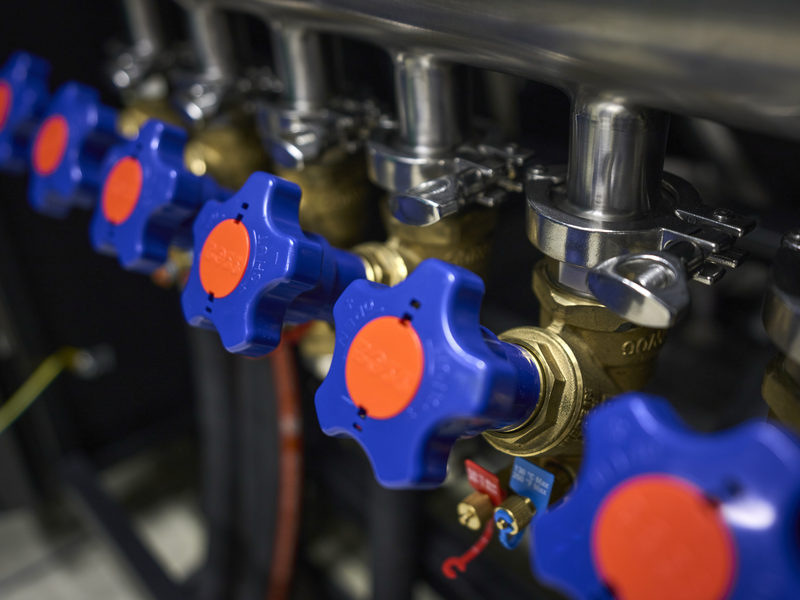Newsletter, March 2024
We’re now well into 2024 and it’s time for the 10th edition of the newsletter. 2023 was probably one of the most transformative and busy years in the history of GenomeDK. In this newsletter we’ll touch on some of the big events. We’ll also provide you with some tips for keeping track of your usage of GenomeDK.
Last year we welcomed 230 new users and handed out 147 official GenomeDK mugs! We also grew from 10028 TB to 15433 TB of data on /faststorage.
What just happened?
A lot of things happened in the server room last year:
- We retired our old faststorage system and replaced it with a new, faster system with a capacity of 23 PB. This required installing three tonnes of equipment and migrating 12 PB of data behind the scenes, with minimal downtime.
- We retired and physically removed tonnes of retired hardware from the server room, preparing GenomeDK for future expansions.
- We installed new servers for the critical infrastructure that makes GenomeDK tick. This included moving all critical services to two new servers, as well as migrating all home folders to a new file server. We also improved and simplified our core network infrastructure.
- We had piping work done so that we now have access to water for water-cooling equipment, which leads us to…
- We purchased and installed, with the help of Danoffice and Lenovo, 60 new compute nodes with a total of 11520 cores and 90 TB of memory. These babies are water-cooled and sit in a single rack.
On top of that, we recently moved all frontends to newer, bigger, faster machines for improved user experience and reliability.
Here’s a few pictures, in chronological order, from the year that passed for your enjoyment!
Credit for pictures 3-6 goes to Nils Krogh.
Outside of the server room, we also saw big changes and improvements:
- All servers were migrated from CentOS 7 to AlmaLinux 8, providing users with a much more up-to-date base system.
- We introduced TOTP-based two-factor authentication for all users, replacing our old whitelist-based setup.
- We improved our information with regards to resource usage for project owners. All project owners now receive a monthly e-mail with usage numbers for each of their projects. Projects owners will also automatically receive an e-mail if one of their projects are highly active.
- We successfully completed our yearly ISAE 3000 audit and ISO 27001 verification audit.
- Our steering committee conducted a workshop to discuss the future strategic objectives for GenomeDK. This resulted in a document which describes the high-level strategic, as well as information security, objectives for the organization.
- We re-designed our website for a more modern and consistent look, and launched our news section (that you’re looking at right now).
- We advertised two new system administrator positions!
In January 2023, we also had a great trip to Happy Tammsvik, Stockholm, Sweden, together with MOMA, where we presented GenomeDK and how we provide infrastructure for MOMA’s clinical diagnostics at the 13th NACG workshop.
Tips and tricks
Running on the frontend
We’re seeing an increased tendency for users to run computations on the frontend. Computations running on the frontend are killed without warning. When you test your code on the frontend, please ensure that:
- it is only using a single core,
- you kill it after at most 10 minutes.
File downloads, moving files, and copying files (more generally things that mostly or only do I/O) is exempted from these rules. It’s perfectly fine to download files on the frontend. In fact, you should never submit a job for downloading data.
Keep track of your usage
Project owners now receive monthly e-mails with up-to-date usage of each of their projects, but it is also possible to retrieve detailed usage data for projects using the gdk-project-usage command. This command also provides usage data over time.
Use SPRING compression for FASTQ files
If you store FASTQ files on GenomeDK, we strongly encourage you to consider SPRING compressing the files to save space. This is especially relevant if the files are also marked for backup.





